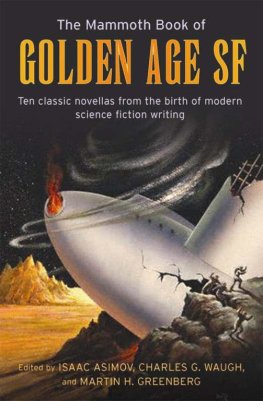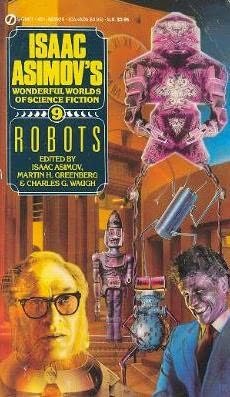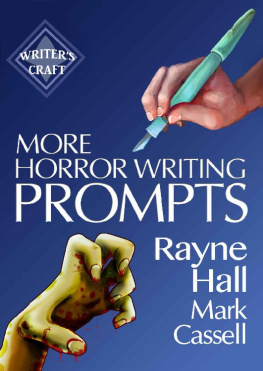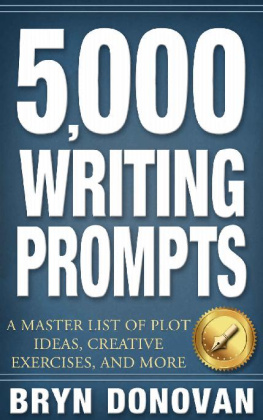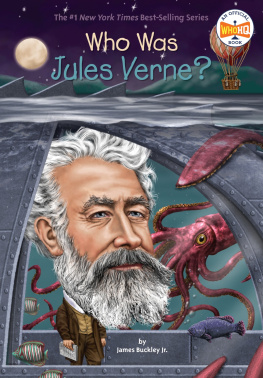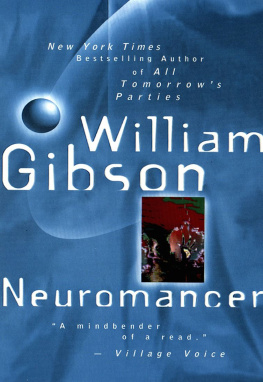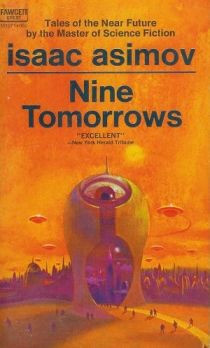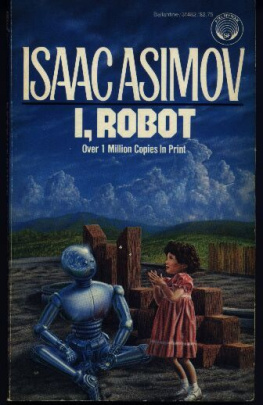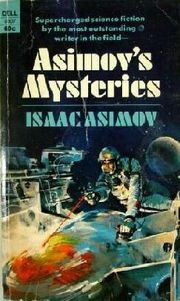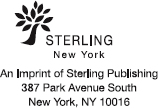STERLING and the distinctive Sterling logo are registered trademarks of Sterling Publishing Co., Inc.
2-3 & throughout, 42, 59, 72: sdecoret/iStock; 28: Filatov Alrxey/Shutterstock; 88: 1971yes/iStock; 105: oorka/iStock
All rights reserved. No part of this publication may be reproduced, stored in a retrieval system, or transmitted in any form or by any means (including electronic, mechanical, photocopying, recording, or otherwise) without prior written permission from the publisher.
Biological section opener, Aftermath section opener, Futurescapes section opener: sdecoret/iStock;
Interstellar section opener: Filatov Alrxey/Shutterstock;
Tech section opener: 1971yes/iStock;
Another Time section opener: oorka/iStock
Cover design by David Ter-Avanesyan
Cover image: CSA-Images/iStock
www.sterlingpublishing.com
INTRODUCTION
Science Fiction (SF), like many of its characters, tends to be born in a laboratory. It also tends to live right on the edge of human knowledge and understanding. The idea for a SF story often grows out of a scientific principle, a strange application of technology, a new discovery, or a gap in our knowledge about the universe. SF, however bizarre, is anchored to our reality, its laws, and its consequences. It is often considered a sibling to Fantasy, as both have elements of the fantastical and unbelievable, but SF is very much its own, unique genre.
All SF has some fantastic elements: rocket ships, unearthly diseases, giant fighting robots, etc. What differentiates SF from Fantasy is that Fantasys unusual elements are born of imagination. There is no need for dragons, magic, and unicorns to have any tangible connection to the real world. On the other hand, SFs fantastical elements are built upon a premise of reality. Regardless of whether a SF story explores the ramifications of a new technology or describes the first contact between aliens and humanity, the plot typically wears an air of plausibility. This connection to reality gives SF its punch. Couching the unlikely within the solidly real gives SF the power of what if, making the impossible seem, well, possible.
These prompts, carefully grown and tended in our labs before being set loose on an unsuspecting world, are a first step. They are a laboratory door left slightly ajar, an invitation into possible worlds. However, the best SF has the same building blocks as all great literature: an immersive, engaging story and strong, well-developed, empathetic characters. Although flying cars or a supercomputer bent on world domination might be at the center of your story, the thing that makes us remember it, and love it, is the emotional connection between the reader and the characters who populate your strange world. For that reason, we tried to focus many of the questions that are paired with the prompts on a character, rather than the larger world or context. What does your character want? What is he willing to do to achieve it? What challenges does he face? Whom or what does he care about?
Subgenres within Science Fiction are tricky, and there are, no doubt, many alternative systems of categorization to the one presented in this book. The subgenre tags we employed here have been selected because they are consistently represented in SF publishing. In other words, these are the tropes and themes that helped build SF and that show up again and again. The prompts in this book have been sorted into seven categories: The Pulp, Interstellar, Biological, Aftermath, Futurescapes, Tech, and Another Time. These subgenres are not meant to be restrictive, and, indeed, many of the prompts presented in this book fit into more than one category. Feel free to combine subgenres or to move freely between them, mixing elements from each. Would you like your Biological story to happen in outer space? Mix in some elements from Interstellar. With laser guns? Sprinkle in some Pulp. Its up to you! If you are interested in publishing your work, subgenre distinctions can help you send your story to the most appropriate market or editor.
While exploring the prompts in this book, remember that the questions are there to guide you, but you need not answer all of themor any of them, even. Remember that challenging the characters and testing the logic of your plot makes for unexpected, interesting narratives. Although these prompts are specific, every story produced from them will be unique, because each writer will create distinctive characters, challenges, and nuances. These story ideas are a fun way to challenge your craft and grow your skill as a writer. 
ThePULP
SPACE OPERA, CAMY, SENSATIONAL
No
1
An alien race of winged superbeings has emerged from a tear in space-time and taken control of early-twentieth-century Earth. Vicious and organized, they quickly crush our surprised defenses and seized control of humanitys technology. Now, with the help of a very unusual scientist, a group of underground freedom fighters has a new weapon that just might turn the tide of battle. The jetpack.
A jetpack and an electro-sword arent much, but theyll get you to one of the enemys hoverbases and give you the element of surprise. Will that be enough? Your move.
No
2
A spaceship is eaten by a massive space-worm! As the crew travels through the monster, they find ships from a wide variety of times and places, long since crashed and dead. Finally they come across a society living inside the space-worm. The citizens of this society are generations removed from their crash-survivor ancestors and refuse to believe they are inside a creature.
How would this society greet outsiders? Would the crew want to convince them of the truth? Will the crew escape or assimilate?
No
3
Psychic/telekinetic mimes terrorize civilians by holding them for ransom in invisible boxes. The citys only hope is in a rogue mime who was dismissed from the evil crew for speaking a single word.
What was the word? How will the mime overpower the superior numbers of his former gang?
No
4
A waiter in an interstellar caf overhears a plot to assassinate the Space President. He wants to intervene, but he cant leave the caf. He can only try to influence the action through the diners.
Why cant he leave the caf? What can he say to influence patrons? What happens if he says the wrong thing?
No
5
As humanity expands into the stars, it becomes more and more difficult to deliver a simple message or a package. A species of aliens, generally more adaptable to different atmospheres and environments, sets up a galactic post office. Most governments consider them above conflict, and theyre given safe passage (with inspections) through the most disputed areas of space.
Does the post office begin to use its power for evil? For good? Can they be bought by one side in a conflict? How might a single post office worker react when they are asked to spy or deliver a secret message? What would be the price of the post office losing its neutrality?


